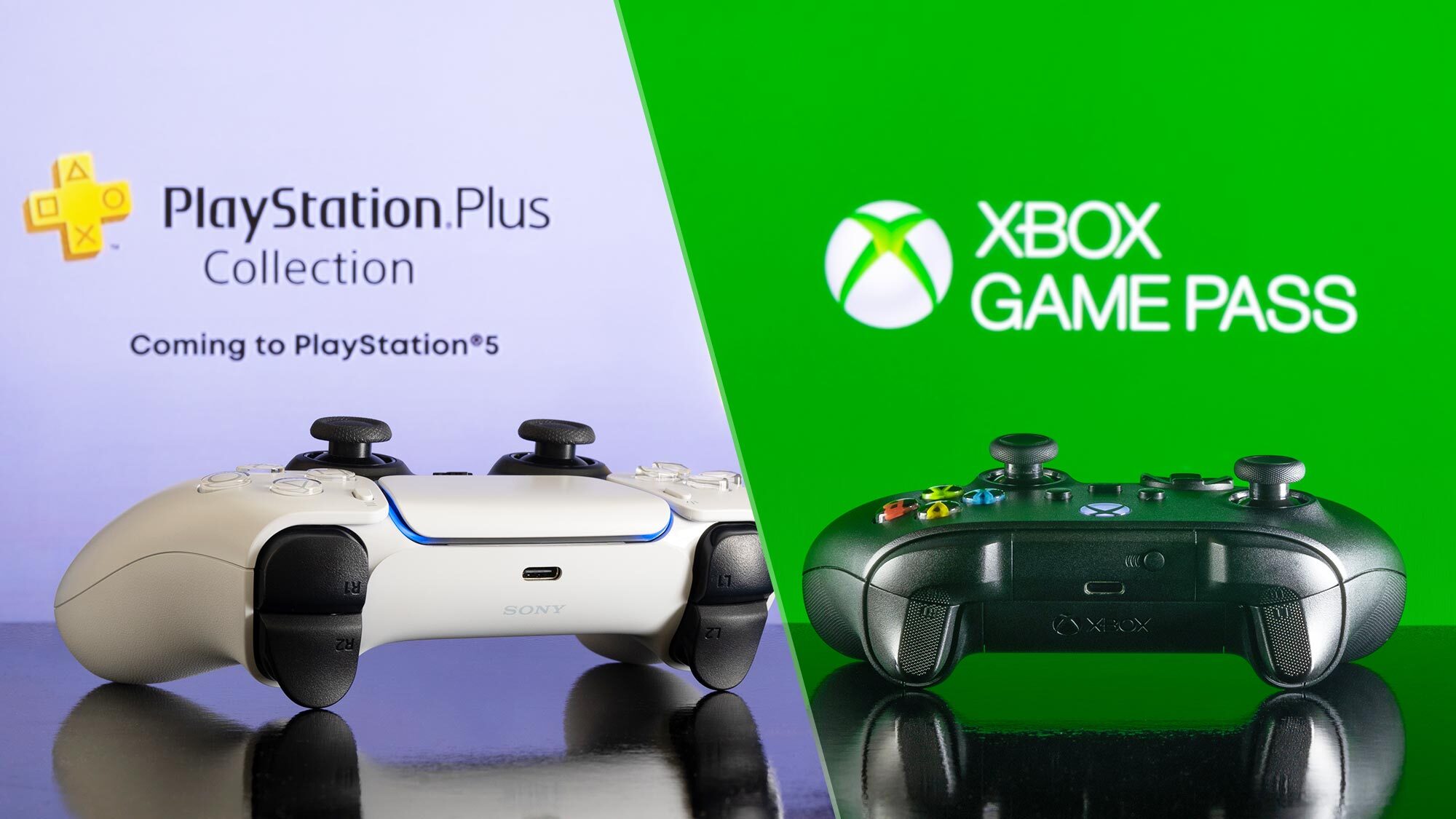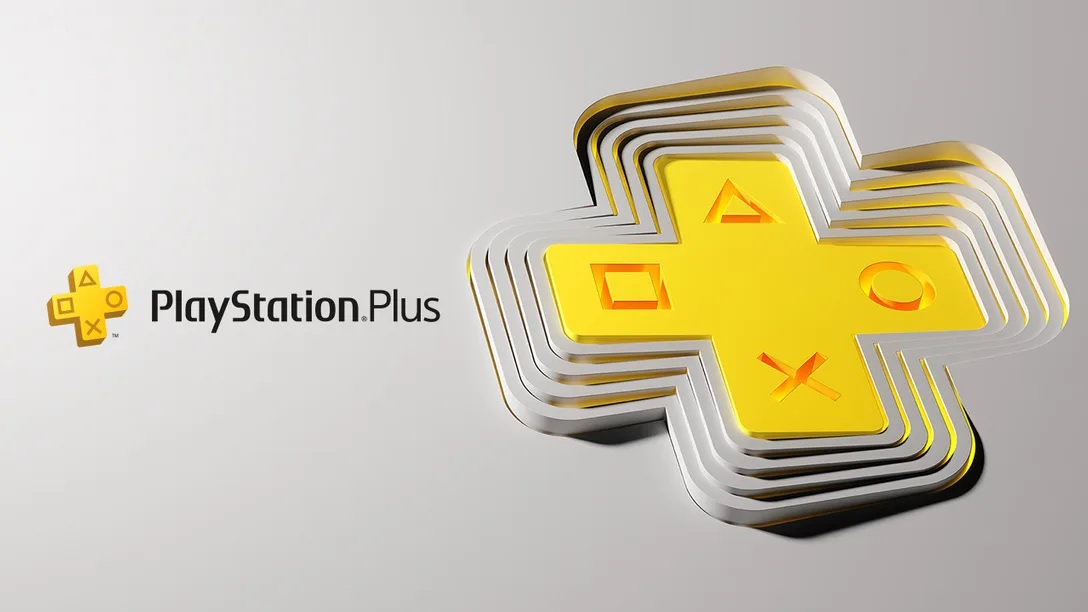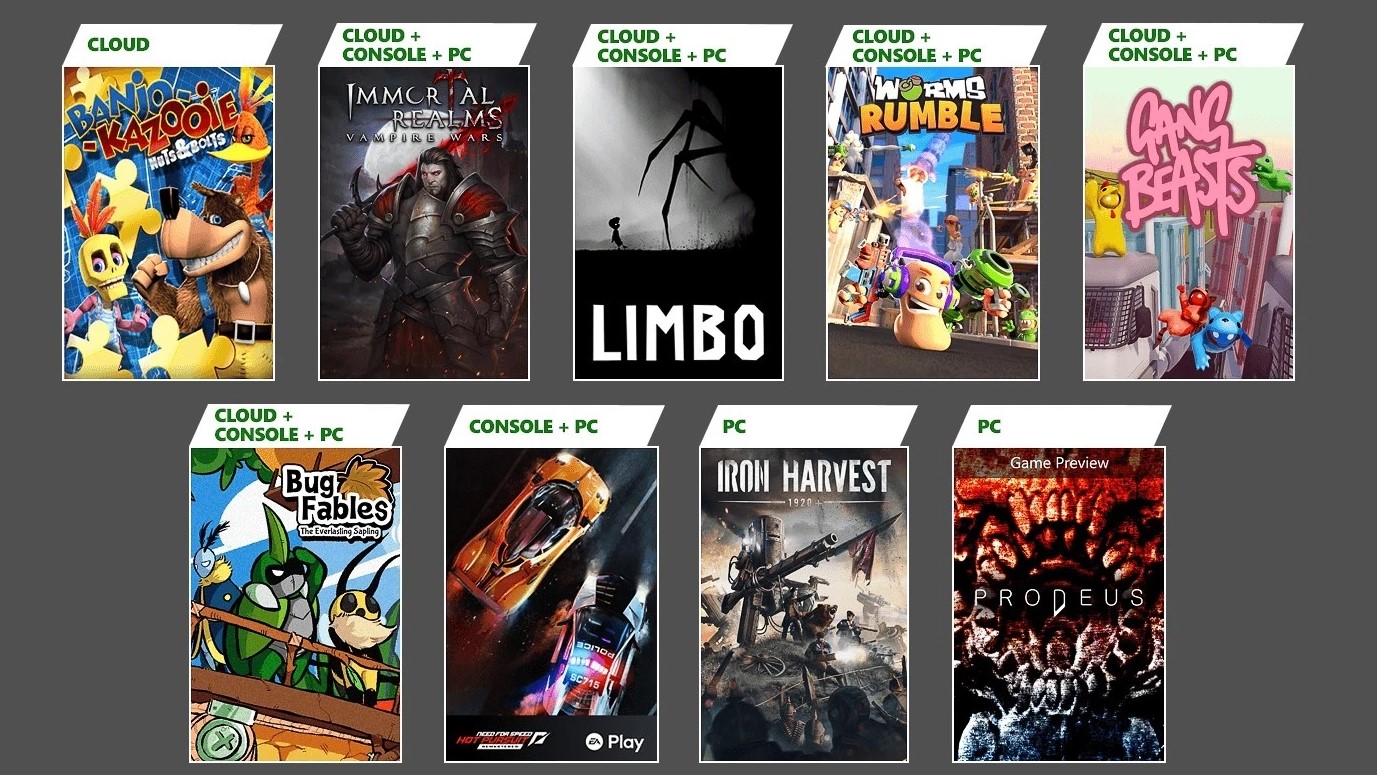Xbox Game Pass vs. PlayStation Plus: How they stack up
Between Xbox Game Pass and PlayStation plus, which gaming subscription is the best?

Xbox Game Pass has become the gold standard for gaming subscription services. Starting at $9.99 per month, Xbox players get access to more than 400 titles — some of which are included on launch day. This is why Microsoft’s gaming subscription service may be the best deal in gaming.
Not to be outdone by its competitor, Sony will soon merge its long-running PlayStation Plus and PlayStation Now services into a revamped PlayStation Plus.
The new PS Plus service is due to arrive in late May and early June in different regions, and like Xbox Game Pass, it will offer many games per month at a relatively small cost. But is the new PlayStation Plus truly a rival to Xbox Game Pass?
Below, we’ll go over what PlayStation Plus and Xbox Game Pass have to offer, and perhaps determine a winner. Read on to see how the services stack up against one another.
Xbox Game Pass vs. PlayStation Plus: Price
The new PlayStation Plus will have three different tiers. PlayStation Plus Essential is the cheapest tier available. It starts at $9.99 monthly / $24.99 quarterly / $59.99 yearly in the U.S., and £6.99 monthly / £19.99 quarterly / £49.99 yearly in the U.K.
This tier offers two monthly downloadable games, exclusive PlayStation Store discounts, cloud storage for saved games and online multiplayer access. This one is no different than the current PlayStation Plus service, available on PS5 and PS4. If you’re currently subscribed to PlayStation Plus you’ll automatically become part of this tier.
PlayStation Plus Extra is the next tier up, and the one that most closely resembles Xbox Game Pass. It costs $14.99 monthly / $39.99 quarterly / $99.99 yearly in the U.S., and £10.99 monthly / £31.99 quarterly / £83.99 yearly in the U.K.
Sign up to get the BEST of Tom's Guide direct to your inbox.
Get instant access to breaking news, the hottest reviews, great deals and helpful tips.
Extra has all the perks of the Essential tier, but also includes access to a catalog of up to 400 of the best PS4 games and best PS5 games, as well as numerous third-party developers. All games offered in this tier are downloadable.

PlayStation Plus Premium is the highest-priced tier, and has the most to offer. As we said in our initial coverage of this story, this tier is effectively a PlayStation-centric take on Xbox Game Pass Ultimate.
Premium costs $17.99 monthly / $49.99 quarterly / $119.99 yearly in the U.S., and £13.49 monthly / £39.99 quarterly / £99.99 yearly in the U.K. This has everything from the previous tiers, as well as an additional 340 games. PS3 games will be available for cloud streaming, along with a selection of games from the original PlayStation, PS2 and PSP generations. Non-PS3 legacy games will be available in both streaming and download formats. You’ll also get time-limited game trials (game demos) with this tier.
Sony revealed its PlayStation Plus Premium game lineup, which offers heavy hitters such as Assassin's Creed: Valhalla, Demon's Souls, Marvel's Spider-Man and more. All told, the service will relaunch with 105 titles, comprising both first- and third-party fare.
PlayStation Plus Deluxe and Premium members will get access to these games as well. PlayStation Plus Essential members will have more or less the same services that PS Plus provides right now, which means a few complimentary games per month, rather than the full library. Check out our full PS Plus tier comparison for more info.

Xbox Game Pass has two core tiers. The cheapest costs $9.99 or £7.99 a month, and is available for Xbox One and Xbox Series X/S. You’ll get access to the entire library of Game Pass Games. Windows PCs have their own version of Xbox Game Pass, which also costs $9.99 or £7.99 a month. This gives you access to more than 400 PC games.
Xbox Game Pass Ultimate, as its name suggests, is the premium tier. It costs $14.99 or £10.99 a month, and gives you access to both Xbox and PC games, as well as cloud streaming and save syncing among all three platforms.
Xbox Live Gold is also included with Xbox Game Pass Ultimate. This provides access to Xbox online services, and offers two complimentary games per month. It also includes an EA Play membership, which gives players access to EA’s online game subscription service as part of Game Pass for Xbox and PC.
Xbox Game Pass vs PlayStation Plus: Games
Xbox Game Pass has more than 400 games available at present, and Microsoft adds more over time. This includes titles from all Xbox generations, from the original 2001 console, to the current Xbox Series X/S.
First-party offerings include titles from the Halo, Gears of War and Forza series. Now that Microsoft has bought Activision and acquired Bethesda, Xbox Game Pass has (and will soon have) franchises like The Elder Scrolls, Doom, Wolfenstein, Redfall and many more.
Third-party games are also featured in Xbox Game Pass, including titles such as Rainbow Six Extraction and the Hitman Trilogy. As mentioned above, you’ll also get EA Play games, such as Star Wars Squadrons and Battlefield 1 on Game Pass Ultimate. We could go on, but suffice it to say that Xbox Game Pass has a wide range of first- and third-party games to choose from.

The premium-priced PlayStation Plus Premium will have a selection of more than 700 downloadable and streamed games from the original PlayStation, PS3, PS3, PSP, PS4 and PS5. Sony made no mention of whether or not Vita titles would be included.
Since PlayStation has been around for more than 25 years, it has a larger selection of first-party offerings. Legacy franchises that were available on PS Now will most likely be playable on PlayStation Plus Premium, including Ratchet & Clank, Sly Cooper, Jak & Daxter, God of War and Metal Gear Solid. Newer franchises, such as Horizon, The Last of Us, Uncharted are also on offer.
Like Game Pass, PlayStation Plus Premium also has a slew of third-party titles. Red Dead Redemption, The Witcher 3: Wild Hunt, Mortal Kombat Komplete Edition and the Batman Arkham series are on offer. You’ll even get smaller gems, such as Super Puzzle Fighter 2 Turbo, Guacamelee, LittleBigPlanet and many more.
Xbox Game Pass vs PlayStation Plus: Play anywhere
Xbox Game Pass Ultimate supports Xbox Cloud Gaming, which makes it possible to play Xbox games on a wide range of platforms. These include Android phones via the Xbox Game Pass app, iOS and Mac devices via the Safari browsers, Chromebooks via the Chrome browser, and on Xbox consoles and Windows PCs via the Xbox Game Pass and Xbox app, respectively. If you have a good internet connection, you can play Xbox games anywhere, on a variety of devices.

PlayStation Plus, like PlayStation Now, allows you to stream games on PS4 and PS5 consoles, as well as PC. Sony made no mention of whether or not it would have an Xbox Cloud Gaming-like app for mobile platforms.
Xbox Game Pass vs PlayStation Plus: Day one games
The main thing that makes Xbox Game Pass so enticing is that all first-party Xbox games are available at launch. For a monthly fee of $15 (for Game Pass Ultimate) you get games such as Halo Infinite, Forza Horizon 5 and Gears of War 5 on the same day they come out. Eventually, Xbox Game Pass subscribers will get titles such as Starfield, and presumably the next Elder Scrolls and Fallout games, at launch.
None of the PlayStation Plus tiers seem to offer first-party games at launch. When GamesIndustry.biz, asked PlayStation CEO Jim Ryan about whether or not Sony first-party games would be added to PlayStation Plus, he said: “This is not a road that we’ve gone down in the past. And it’s not a road that we’re going to go down with this new service.”
Ryan went on to say: “We feel if we were to do that with the games that we make at PlayStation Studios, that virtuous cycle will be broken. The level of investment that we need to make in our studios would not be possible, and we think the knock-on effect on the quality of the games that we make would not be something that gamers want.”
Sony could change this stance in the future. But for now, don't expect first-party exclusives on PlayStation Plus right when they launch.
Xbox Game Pass vs PlayStation Plus: Which one is right for you?
At a glance, Xbox Game Pass, specifically Xbox Game Pass Ultimate, seems better than PlayStation Plus Premium. Not only is it $2 cheaper per month, but you’re also able to play Xbox games on mobile devices and web browsers via Xbox Cloud Gaming. Most importantly, Xbox Game Pass offers first- and (some) third-party games at launch. That fact alone could make some people choose Xbox Game Pass Ultimate over PlayStation Now. But there are other factors to consider.
PlayStation Plus Premium may not have games such as God of War: Ragnarok at launch, but that and all future PlayStation exclusives could eventually make it to Sony’s subscription service. If you’re a patient gamer who doesn’t need to play games at launch, then you’ll probably get newer releases eventually.
There’s also the fact that PlayStation Plus Premium offers hundreds of titles encompassing five generations of PlayStation consoles. Even if you have to stream some games, having access to classic PlayStation titles is nothing to balk at. The library of games on PlayStation Plus Premium will only grow, with both new and older titles. And it can be argued that, given how Starfield and Redfall have been delayed to 2023, that Game Pass is now less enticing.
Of course, if you only own a PlayStation or Xbox, then you should subscribe to the service for whichever system you own. If both consoles have found their way into your home, you may want to subscribe to both services, provided you can afford them. As things stand, gamers should get great offerings no matter which subscription they opt for.

Tony is a computing writer at Tom’s Guide covering laptops, tablets, Windows, and iOS. During his off-hours, Tony enjoys reading comic books, playing video games, reading speculative fiction novels, and spending too much time on X/Twitter. His non-nerdy pursuits involve attending Hard Rock/Heavy Metal concerts and going to NYC bars with friends and colleagues. His work has appeared in publications such as Laptop Mag, PC Mag, and various independent gaming sites.
